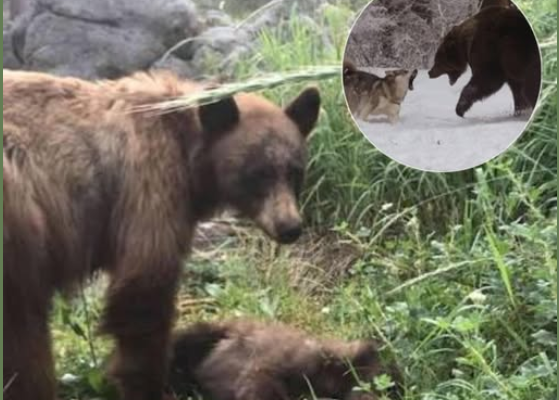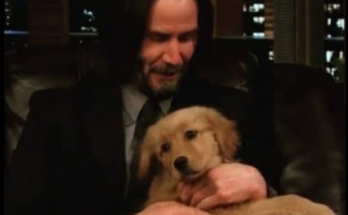Nature is often described as beautiful, but it is just as often brutal. Predators and prey live in constant tension, each driven by instinct to survive. Yet sometimes, what unfolds in the wild seems to go beyond instinct—into the raw territory of emotion.
Deep in the wilderness, researchers witnessed a story that left them both stunned and unsettled. A mother bear, having just lost her cub to a wolf pack, did something no one expected.
For two weeks, she abandoned her normal habits of foraging for berries and fish. Instead, she turned her full attention to the wolves. One by one, she hunted them down. The remarkable part wasn’t her strength—bears are formidable predators—it was what she did afterward.
She didn’t eat them.
Instead, she dragged their bodies across the landscape, leaving them behind like markers, warnings etched in fur and blood. Each fallen wolf told the same story: a mother’s grief had turned to vengeance.
Scientists observing the aftermath were shaken. Such behavior had never been documented before. Predators kill to eat, to survive. But this was something different—an act fueled by emotion, as though the bear was making a statement to the pack that had taken her cub.
It was a chilling yet powerful reminder that animals feel deeply, that bonds between mother and child run far beyond our human understanding. Her grief, uncontained, had driven her into a relentless campaign, rewriting what scientists thought they knew about bear behavior.
In the wild, life and death are constant companions. But this story shows us that even there, love and loss can echo louder than survival itself.
🐻💔 #animals #bear #wholesome


